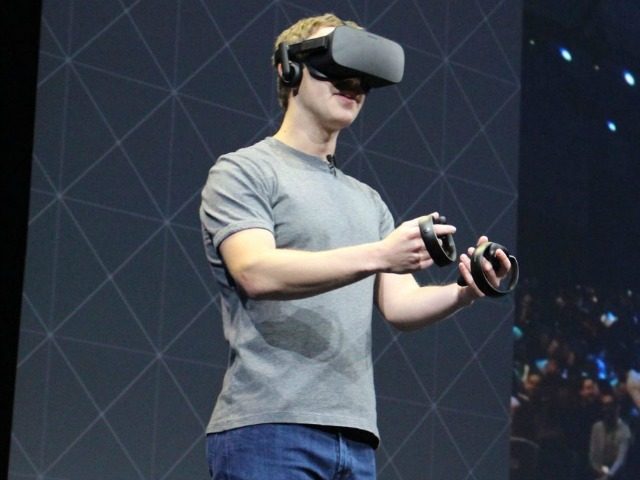A new VR headset made by Facebook (now known as Meta) will track a person’s eyes for targeted ads, giving users the eerie feeling that the social media company has gotten one step closer to reading their minds.
Facebook recently revealed its new $1,500 “Meta Quest Pro” VR headset, equipped with upgraded hardware, advanced features, and cameras that point inward to track your eyes and face, according to a report by Gizmodo.
Mark Zuckerberg’s company has included an “Eye Tracking Privacy Notice,” in which Facebok says it will use eye-tracking data to help the company “personalize your experience” and improve the device.
In privacy policy lingo, the term “personalize your experience” refers to using the data for marketing so that the user will receive targeted ads.
But this particular method for targeting ads is unlike anything ever seen before, as it involves tracking a user’s eyes and face to give Facebook unparalleled insight into their emotions.
“We know that this kind of information can be used to determine what people are feeling, especially emotions like happiness or anxiety,” Ray Walsh, a digital privacy researcher at ProPrivacy, said. “When you can literally see a person look at an ad for a watch, glance for ten seconds, smile, and ponder whether they can afford it, that’s providing more information than ever before.”
Walsh added that when it comes to Facebook’s products such as Horizon Worlds — which allows users to build and interact in virtual worlds with an avatar — it may be difficult for people to resist activating the eye-tracking feature due to how their avatar will appear in the metaverse.
“If Meta is successful, there’s going to be a stigma attached with denying that data,” Walsh said. “You don’t want to be the only one looking like an expressionless zombie in a virtual room full of people smiling and frowning.”
Currently, there are no ads in Horizon Worlds, Gizmodo notes, but predicted that advertisements are inevitable, given the tech giant’s business model.
Moreover, Facebook patented a mechanical eyeball in January, and also filed a patent for a system that “adapts media content” based on facial expressions, the report adds.
Eye-tracking data is very invasive, as it can be used to calculate what a user is thinking about buying by tracking how many seconds a person spends looking at an ad, but measuring a user’s emotions while looking at content is an entirely new level.
Facebook has already been under scrutiny for manipulating users’ privacy choices to influence people into giving away more of their data.
You can follow Alana Mastrangelo on Facebook and Twitter at @ARmastrangelo, and on Instagram.


COMMENTS
Please let us know if you're having issues with commenting.